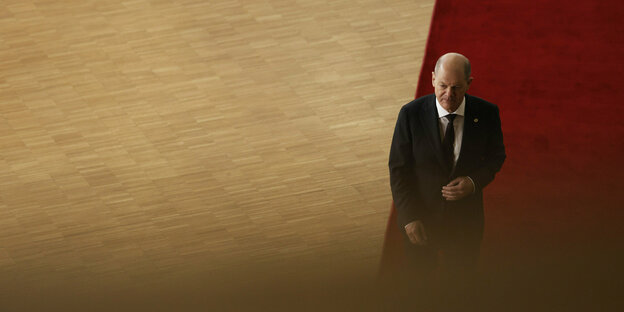The arrest of alleged Russian spies is a success for German authorities. The attack shows how professional hybrid warfare is.

Chancellor Olaf Scholz's government must follow words with actions Photo: Omar Habana/ap
It must now be clear to all politically responsible parties in Germany that Russia will not stop in the face of military or civilian attacks in Ukraine and digital disinformation campaigns abroad. Hybrid warfare not only means spreading fake news through social media, but also recruiting personnel for espionage, attacks and intimidation on German soil.
In this sense, the German authorities have done a great job by arresting two suspected Russian spies in Bavaria: on the one hand, they have raised awareness about the multiple threats and, on the other, they have potentially prevented a violent crime.
It is also bitter to see that the recruitment and installation of Russian liaison officers in Germany has been going on for many months, if not years. The start of Russia's war of aggression against Ukraine in February 2022 is just one of several temporal markers. Apparently, this hybrid war began much earlier.
Taking action against the professionalism of the actors deployed by Russia is unlikely to be completely successful. This knowledge is also part of the truth. But now the federal government is urgently required to put its words into action. In the federal government's summer 2023 national security strategy, a chapter was dedicated to protecting critical infrastructure, combating disinformation and increasing attention to hybrid warfare itself. The Ministry of Defense has also made room for this in its guidelines. The Federal Ministry of the Interior also deals with cases of this type.
This mosaic joins forces, but it does not unite them. The new suspected cases of sabotage and espionage show more than clearly that it is now necessary to close these doors and develop a common strategy.
